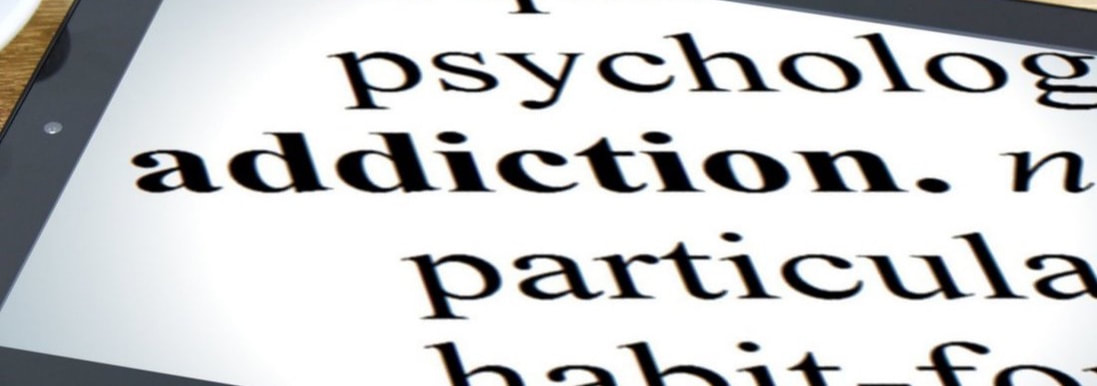|
In our most recent post, we picked apart the dictionary definition of “addiction.” Our conclusion: people use the word “addiction” to say so many things in so many contexts that the word has become practically meaningless. The sentence “John is addicted to slot machines” could mean John really enjoys slot machines, or that John has a debilitating gambling problem, or both. Confusion reigns.
That seems, to us, like a problem worth addressing. “Addiction” is one of the most prominent concepts in social discourse today. Shouldn’t we all at least try to get on the same page about what it means? In this post, we look at a definition of addiction that we all might rally around. It’s a definition of “addiction” developed by experts in the field of addiction medicine. And, it has some fascinating implications for coming to grips with how some of us used, and abused, porn. The American Society of Addiction Medicine defines “addiction” this way: "Addiction is a primary, chronic disease of brain reward, motivation, memory and related circuitry. Dysfunction in these circuits leads to characteristic biological, psychological, social and spiritual manifestations. This is reflected in an individual pathologically pursuing reward and/or relief by substance use and other behaviors. Addiction is characterized by inability to consistently abstain, impairment in behavioral control, craving, diminished recognition of significant problems with one’s behaviors and interpersonal relationships, and a dysfunctional emotional response. Like other chronic diseases, addiction often involves cycles of relapse and remission. Without treatment or engagement in recovery activities, addiction is progressive and can result in disability or premature death." Now, that’s a lot to chew on, so let’s break it down. First, and most prominently, addiction is called a “disease” (which, interestingly, is the same word 12-step programs have used to describe “addiction” for decades). It’s a disease that’s “primary” (meaning it arises spontaneously, not as a result of some other disease, injury or event) and “chronic” (meaning it’s long-lasting). And it’s a disease affecting the brain’s circuitry for “reward” (the brain telling you something feels good), “motivation” (the brain telling you to do something) and “memory.” Next, according to the ASAM definition, this disease of addiction has certain characteristic “manifestations”, or traits, summed up with the mnemonic device “ABCDE”: “Inability to consistently Abstain, impairment in Behavioral control, Craving, Diminished recognition of significant problems with one’s behaviors and interpersonal relationships, and a dysfunctional Emotional response.” Finally, this disease of addiction is reflected in behaviors, namely “pathologically pursuing reward and/or relief by substance use and other behaviors.” What’s so fascinating about this final element the ASAM definition of “addiction” is that these behaviors - doing drugs, binge drinking, etc. - are what we commonly think of as “being addicted.” But, according to the ASAM, that’s not quite accurate. The behaviors aren’t “addiction” themselves, but rather, they are actions signifying the presence of a brain disease called “addiction” - a disease that exists independent of those actions. To put it another way, the ASAM definition of “addiction” suggests that the problem might not be that the sentence “John is addicted to slot machines” has multiple potential meanings. Instead, the problem could be that “John is addicted to slot machines” misuses the word “addiction” altogether. If the ASAM definition holds true, John isn’t addicted to anything. Instead, the accurate way to describe John’s condition would be “John has a brain disease called addiction. In John, that disease shows up in the way he can’t control himself around slot machines.” And, if that’s the case, then addiction could show up in lots of other ways, too, such as compulsively binging on porn. The ASAM definition has the potential to change the way we use the word “addiction.” It also raises complex and challenging issues for another day, like “if addiction is a disease, how does a person contract it?” and “if my compulsive, destructive actions are the result of my having a brain disease called addiction, what responsibility do I have for them, and for seeking treatment?” It also bears noting that the “addiction as disease” concept does not enjoy universal acceptance. One commentator, for instance, recently posited that addiction isn’t a disease but, instead, it’s a learning disorder. For our part, we find the ASAM definition of “addiction” somewhat comforting. For many of us, the awful experience of compulsively binging on porn, despising what it was doing to our lives, and trying to stop but repeatedly failing, led to enormous confusion. Why was this happening? What the hell was wrong with us? Perhaps the answer to those questions was “addiction” in the ASAM sense, a dysfunction in our brain’s reward, motivation and memory circuitry that led to the behavior we so hated, but could just as easily have led to some other equally destructive actions, like runaway drug use or problem gambling. Gaining that perspective on our porn use problem eased the shame we felt about our vexing, embarrassing failures, and offered us a tangible, identifiable problem to tackle once and for all. Even so, it also occurs to us that perhaps we’re asking the term “addiction” to do too much work in the lives of people struggling with problematic behaviors. Maybe the many afflictions we refer to as “addiction” exhibit too many causes and variations to be captured in a single word. Instead, maybe it's better to focus on making sure people have access to resources for helping them stop destructive behaviors, whatever we call those behaviors. After all, for people stuck in a downward spiral of porn abuse, often the most important thing is simply knowing that they’re not alone and that there is hope for finding a way out.
0 Comments
Leave a Reply. |
AuthorLonger-form writing from the PornHelp team on current topics relating to problem porn use and recovery. Archives
June 2020
Categories |


 RSS Feed
RSS Feed